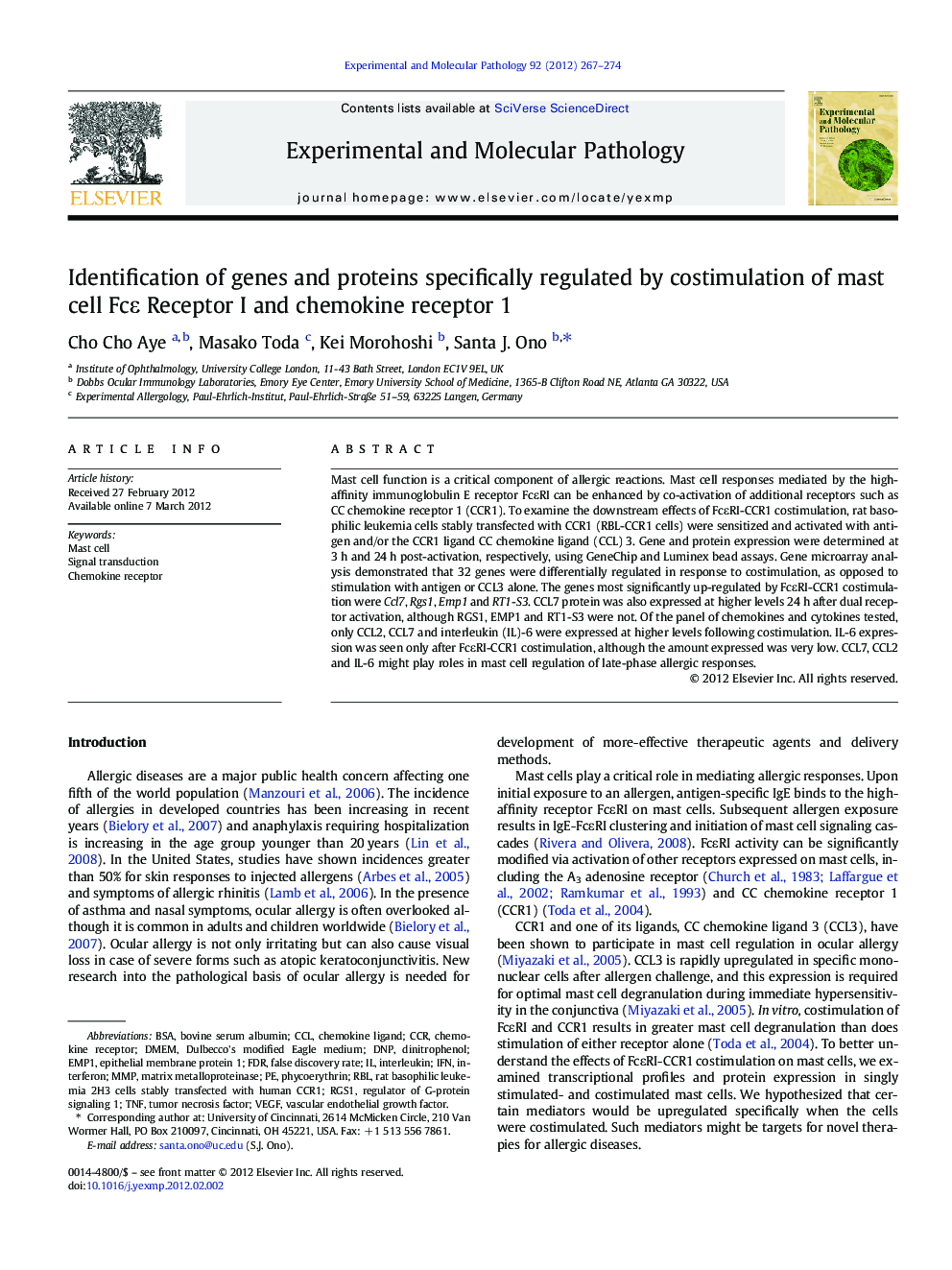| Article ID | Journal | Published Year | Pages | File Type |
|---|---|---|---|---|
| 2775090 | Experimental and Molecular Pathology | 2012 | 8 Pages |
Mast cell function is a critical component of allergic reactions. Mast cell responses mediated by the high-affinity immunoglobulin E receptor FcεRI can be enhanced by co-activation of additional receptors such as CC chemokine receptor 1 (CCR1). To examine the downstream effects of FcεRI-CCR1 costimulation, rat basophilic leukemia cells stably transfected with CCR1 (RBL-CCR1 cells) were sensitized and activated with antigen and/or the CCR1 ligand CC chemokine ligand (CCL) 3. Gene and protein expression were determined at 3 h and 24 h post-activation, respectively, using GeneChip and Luminex bead assays. Gene microarray analysis demonstrated that 32 genes were differentially regulated in response to costimulation, as opposed to stimulation with antigen or CCL3 alone. The genes most significantly up-regulated by FcεRI-CCR1 costimulation were Ccl7, Rgs1, Emp1 and RT1-S3. CCL7 protein was also expressed at higher levels 24 h after dual receptor activation, although RGS1, EMP1 and RT1-S3 were not. Of the panel of chemokines and cytokines tested, only CCL2, CCL7 and interleukin (IL)-6 were expressed at higher levels following costimulation. IL-6 expression was seen only after FcεRI-CCR1 costimulation, although the amount expressed was very low. CCL7, CCL2 and IL-6 might play roles in mast cell regulation of late-phase allergic responses.
